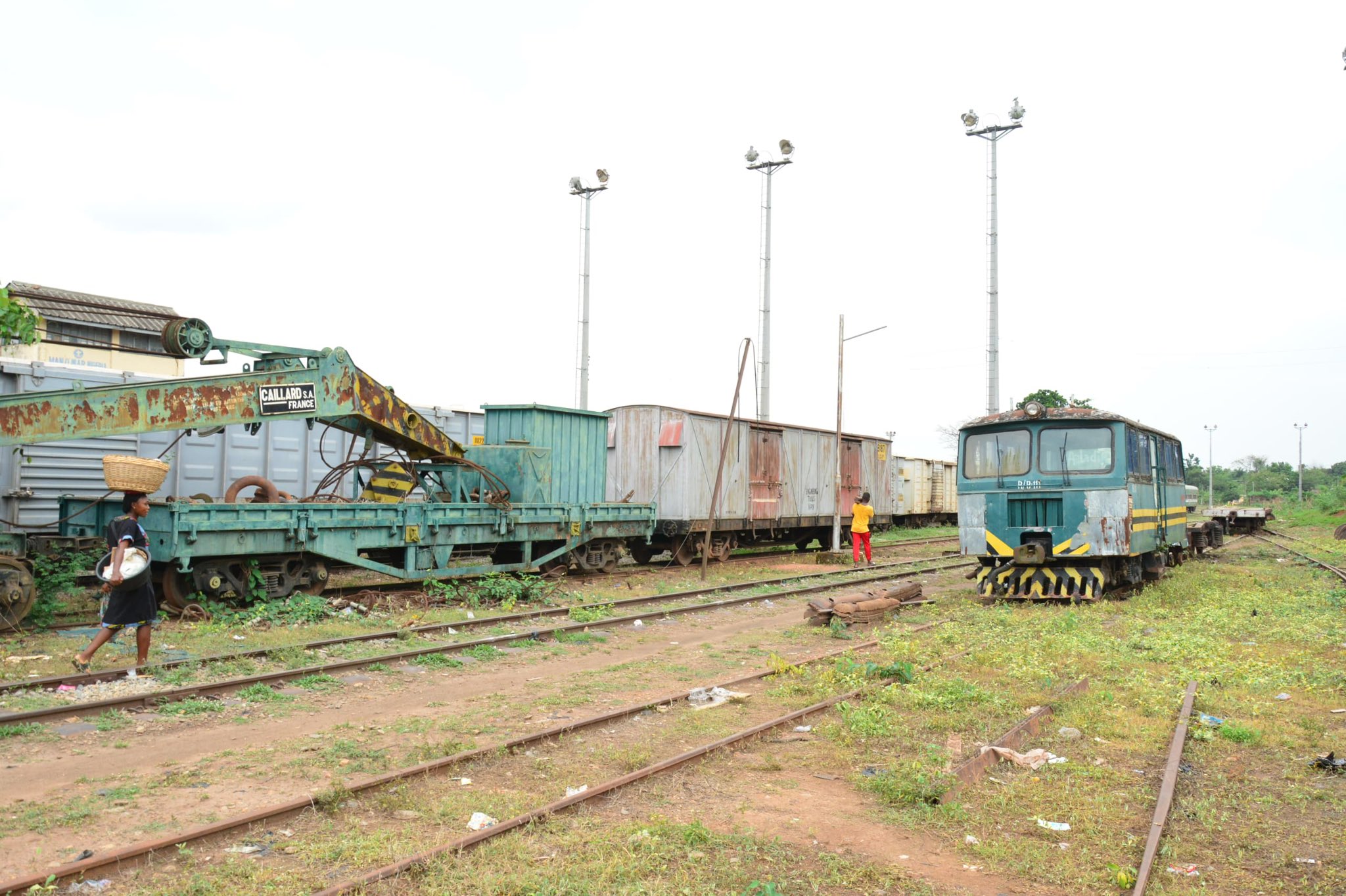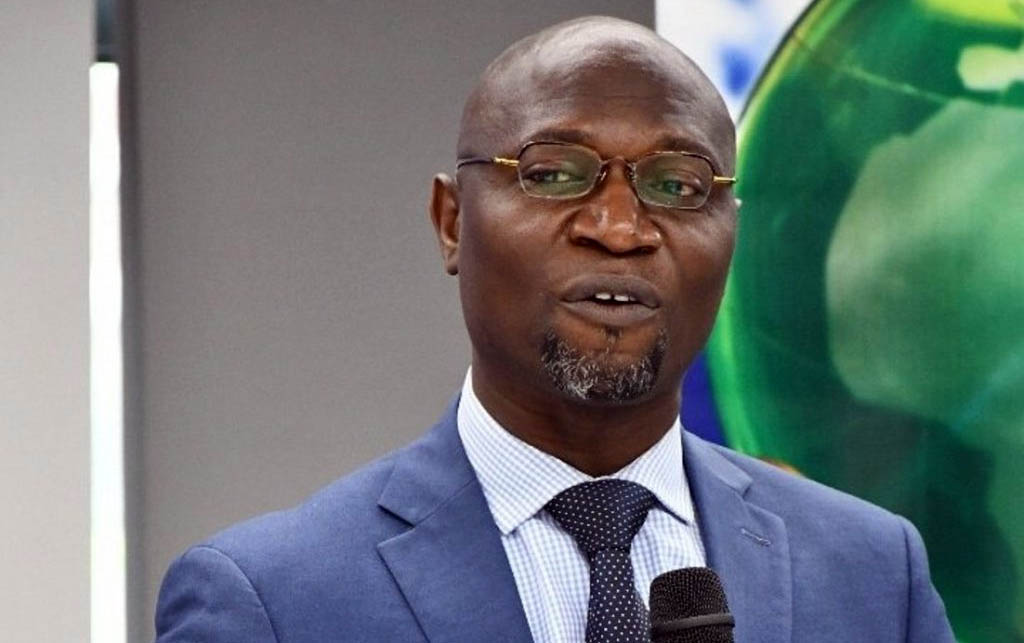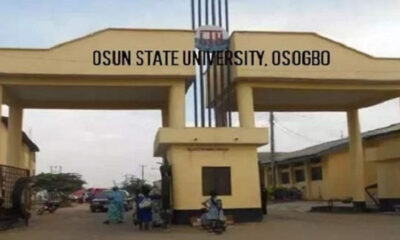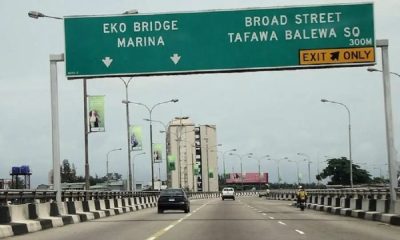Business
FG moves to stop $1.9bn monthly loss to oil theft

The Federal Government has stepped up moves to halt oil theft, costing Nigeria a monthly loss of $1.9bn, Minister of State for Petroleum Resources, Chief Timipre Sylva, has said.
He said Nigeria was not meeting its production quota at the Organisation of Petroleum Exporting Countries, OPEC, due to oil theft.
Sylva, who led a Federal Government delegation on anti-oil theft to Governor Ifeanyi Okowa of Delta State, said the team was in Asaba to seek the support and buy-in of the state government on measures to be adopted to check oil-theft in the country.
He said, “As a country, we cannot sustain this kind of theft perpetually, oil theft has become a national emergency, especially as the nation has not been able to meet its OPEC production quota.
“Our production has dropped drastically to very unsustainable levels. So, we have decided to take the bull by the horn by putting some structures in place and those structures cannot function effectively without the collaboration of the state government.”
On his part, the Chief of Defence Staff, General Lucky Irabor, who is coordinating the security intervention against oil theft, said security agencies had been dealing with issues of illegal refineries and oil bunkering across the Niger Delta in the last five months.
Irabor advocated the engagement of indigenes and host communities in the fight against the criminal activity.
Mele Kyari, who was also part of the delegation, lamented that Nigeria was currently losing about $2 billion monthly to the activities of oil vandals, with its attendant effect on environmental degradation.
Kyari said, “As a country, we hardly meet our OPEC production quantum of 1.99 million barrels per day with our current production level of 1.4 million barrels per day, which is currently being threatened by the activities of these economic saboteurs.
“This has done extensive damage to the environment and losing 1.9 billion dollars every month is colossal, considering the nature of the global economy at the moment.”
He held that the team needed the support and buy-in of Delta State government “because stopping this oil theft requires the concerted efforts of the Federal, State Governments, oil companies and security agencies”.
In his remarks, Governor Ifeanyi Okowa advocated a review of surveillance contracts on oil facilities to involve host communities in order to check the high rate of oil theft in the country.
Okowa insisted that reviewing oil surveillance contracts based on performance of the contractors and engagement of host communities would ensure effectiveness in securing the nation’s oil and gas assets.
While admitting that the challenge of oil-theft was huge, given the level it had assumed, the governor expressed joy with the steps being taken by the authorities to curb the menace.
He said: “I am glad that we are discussing this hydra-headed issue which impacts directly on our economy and the environment.
“It impacts on the health of the people and sustainability of the environment and I am glad that we are taking some steps because there are so many issues that led us to this.
“We went through situations where gaps where created between host communities and oil companies, and unfortunately criminality set in.
“It has gone so bad but we are doing our best as a state. I am also glad about this collaboration,’’ pointing out that it was often difficult to secure the facilities, especially when the persons given the contracts did not have adequate information on the environment or not have the buy-in of host communities.
“We know that the impact of the nefarious activities on the health of the people cannot be immediately ascertained, and this collaboration is, therefore, very imperative.
“Any measure that will deliberately reduce the level of oil thefts is definitely worth supporting, and as a state government, we pledge our continued support.
“Why investment of the communities is needed is because there are some parts of the creeks that cannot be accessed by the surveillance contractor. Therefore, surveillance contracts should not be such that communities are not involved.
“The surveillance contracts should be tied to performance such that when there are oil thefts you terminate the contract and it is always good that communities are involved because they know the environment better”.
The governor berated oil companies for not keeping faith with their Memorandum of Understanding, MOUs, thereby making the stakeholders to lose confidence in the system.
He explained that when oil companies failed to sign or implement MoUs, “it becomes very difficult for the state government to mediate when there are issues.
“The security agencies must heighten their operations and they need to be resourced to enable them to also increase their level of surveillance and for this to succeed, there must be sincerity on the part of all stakeholders.
Railway
NRC ready for Lagos-Kano cargo train services – Opeifa

NRC ready for Lagos-Kano cargo train services – Opeifa
…says railway properties are national assets not scrap

Managing Director of the Nigerian Railway Corporation Dr Kayode Opeifa has declared that the Western district is ready for cargo train movement between Lagos and Kano on the narrow gauge.
He stated this at Dugbe, the Ibadan Narrow Gauge Train Station, after inspecting Moniya Freight Park, in Ibadan, Oyo State, during the tour of operations on the Western Line, as part of his inspection of all districts which commenced on Friday.
The NRC MD also stressed that no property of the corporation should be seen as scrap but critical national assets that must be treasured, according to a statement released the NRC MD media team.
He said, “The essence of this tour is to enable us to access our readiness to handle the cargo side of our business as business and logistics facilitator.
“We are happy with the extent of what we have seen and we can comfortably say we are ready to move any manner of cargo for any of our customers.”
Opeifa had commenced the tour from the Mobolaji Johnson Train Station at Ebute Metta, Lagos, where he inspected the facilities available for passengers’ convenience.
At his next stop at Omi Adio, he inspected the facility being put in place to establish another cargo park there. He directed the acquisition of more land around the proposed dry port area to provide for anticipated business the dry port would be processing when the business finally comes on stream.
Opeifa was joined on the inspection at the Ladoke Akintola Train Station, Omi Adio, by the Director General of Development Agenda for Western Nigeria (DAWN Commission) Dr. Seye Oyeleye, who expressed the readiness to work with the NRC to reactivate the narrow gauge line within some of the states in the South-West for mass transportation.
The inspection took NRC boss and his management team to the Obafemi Awolowo Train Station, Moniya and the Moniya Cargo Park, where he inspected the readiness of the port to facilitate cargo business.
He also inspected the Western District Headquarters at Dugbe, Ibadan, where he charged the workers to double their efforts and improve the Internally Generated Revenue (IGR) of the railway.
“I can approve an improvement in your allowances once we improve our IGR. So let us be committed to doubling our efforts,” he said.
Opeifa said the management wt determined to recommence cargo commitment from Lagos to Kano, even as he said he would be at Ibadan to flag off the Dugbe end of the movement once the service begins.
He also commended all railway women, urging them to continue to prove their mettle in keeping the wheel of the rail going.
Addressing the welfare of pensioners, Opeifa said the corporation would continue to work at improving their welfare.
“I don’t need to be told, I can feel so many things and I can only assure you that the management will continue to work at improving your living conditions,” he said.
He reiterated his call for vandals to stop sabotaging the corporation’s effort at improving its services.
“Let me emphasize again that there are no scraps in the Nigerian Railway Corporation. All we have are rail materials. All our materials are in serviceable conditions.
“From here we are moving cement from Ewekoro to Osogbo and to Ilorin. All these wagons you see, all these rail sleepers, all the iron are still working and all security operatives have been directed to arrest and prosecute anyone caught vandalising our property.
“No one is permitted to carry our materials. No letter of approval is sufficient to allow anyone to do so, security operatives should put a call across to us to enable us authenticate such activity,” he said.
Aviation
Aviation workers threaten nationwide airports shutdown over Customs officer assault

Aviation workers threaten nationwide airports shutdown over Customs officer assault
Aviation unions have announced plans to shut down airports across Nigeria starting March 31 in protest against the failure to remove a customs officer who allegedly assaulted the Director of Aviation Security at the Federal Airports Authority of Nigeria (FAAN).
In a joint statement signed by Ocheme Aba (NUATE), Frances Akinjole (ATSSSAN), and Abdul Rasaq Saidu (ANAP), the unions condemned the repeated physical assaults on FAAN staff, vowing not to tolerate such incidents any longer.
The unions also called on the government to urgently reduce the number of customs officers operating within the aviation sector, aligning with global best practices. They warned that if their demands are not met, they will proceed with the nationwide shutdown, potentially disrupting air travel and operations.
The statement reads: “Considering the enormity and frequency of physical and psychological assault on the staff and management personnel of FAAN, of which there is no end in sight, we are compelled to inform the management of the unwavering determination of our unions to cause the establishment of a clear framework of mutual respect among FAAN staff and the security agencies operating at the airports.
READ ALSO:
- Over 100 suspects arrested in Abuja Ponzi Scheme Academy raid
- Again Obasanjo accuses federal lawmakers of bribery
- FG to pay corps members backlog of delayed N77,000 allowance
“Consequential sanctions are in place which guarantee the safety and human rights of FAAN staff. We shall direct all the workers to withdraw from the airports with effect from March 31, 2025, pending when such protocols are established.
“The recent assault on no less a personality than the Director of Aviation Security of FAAN is one too many, which leaves a taste too bitter to swallow. It is our sincere hope that our demand in the above respect is well met to avoid the industrial conflagration that will ensue in the absence of acceptable remedial actions.”
In response, Abdullahi Maiwada, the spokesperson for Customs, stated in a recent release that the disagreement between FAAN officials and officers of the Nigeria Customs Service (NCS) stemmed from a miscommunication over equipment movement and seating arrangements.
Aviation workers threaten nationwide airports shutdown over Customs officer assault
Business
SEC announces stricter measures to protect investors

SEC announces stricter measures to protect investors
The Securities and Exchange Commission (SEC) has reaffirmed its commitment to protecting investors in Nigeria’s capital market by cracking down on fraudulent activities.
According to the Director-General of SEC, Dr. Emomotimi Agama, operators engaging in unscrupulous practices will face strict penalties as the Commission prioritizes safeguarding investor interests.
“So, clearly for us, it is getting people to understand that there is no hiding place anymore for anybody that has the intention to defraud Nigerians and to defraud anybody that is investing in this market,” Dr. Agama stated, emphasizing the Commission’s zero-tolerance policy.
READ ALSO:
- Why postgraduate students are ineligible for FG loan – NELFUND
- Bitcoin rises above $86,000 as crypto market gains momentum
- 2 Nigerians in US face heavy jail term over fraud
Dr. Agama highlighted that the Investments and Securities Act (ISA) 2007 serves as the framework for securities regulation in Nigeria, ensuring that market operators adhere to high ethical standards.
He emphasized the importance of the “fit and proper person’s test,” which requires operators to meet specific regulatory criteria to maintain their licenses.
“This is because the very ethics of regulating or registering a securities market operator is in the principle of the fit and proper person’s test,” he explained.
“What you have been seeing most recently by the revocation of licenses, the suspension of operators and our follow-up to operators that are not registered with the SEC is only a tip of the iceberg as to what we intend to do this year.”
Dr. Agama assured stakeholders that the SEC will leverage its regulatory powers under Nigerian law to deter fraudulent activities, noting, “We believe strongly that a protected investor is a powerful investor.”
SEC announces stricter measures to protect investors
-

 metro2 days ago
metro2 days agoAttack on Mufty of Ilorin: Onikijipa Family Charges Stakeholders to Call Sheikh Habibullahi Al-Ilory to Order
-

 Health2 days ago
Health2 days agoNigerian doctor pioneers W’Africa first robotic prostate cancer surgery
-

 metro2 days ago
metro2 days agoFubara: Supreme Court reacts to photo of Justice Agim with Wike
-

 metro2 days ago
metro2 days agoUNIOSUN mourns as 5 students die in auto crash
-

 metro1 day ago
metro1 day agoHow ritualists, native doctor drugged, murdered underage sisters in PH – Police
-

 International1 day ago
International1 day agoCanada removes bonus ranking points for job offers in Express Entry system
-

 metro6 hours ago
metro6 hours agoJUST-IN: Ex-Oyo gov Ajimobi’s first child Bisola dies At 42
-

 metro2 days ago
metro2 days agoAgain Obasanjo accuses federal lawmakers of bribery













